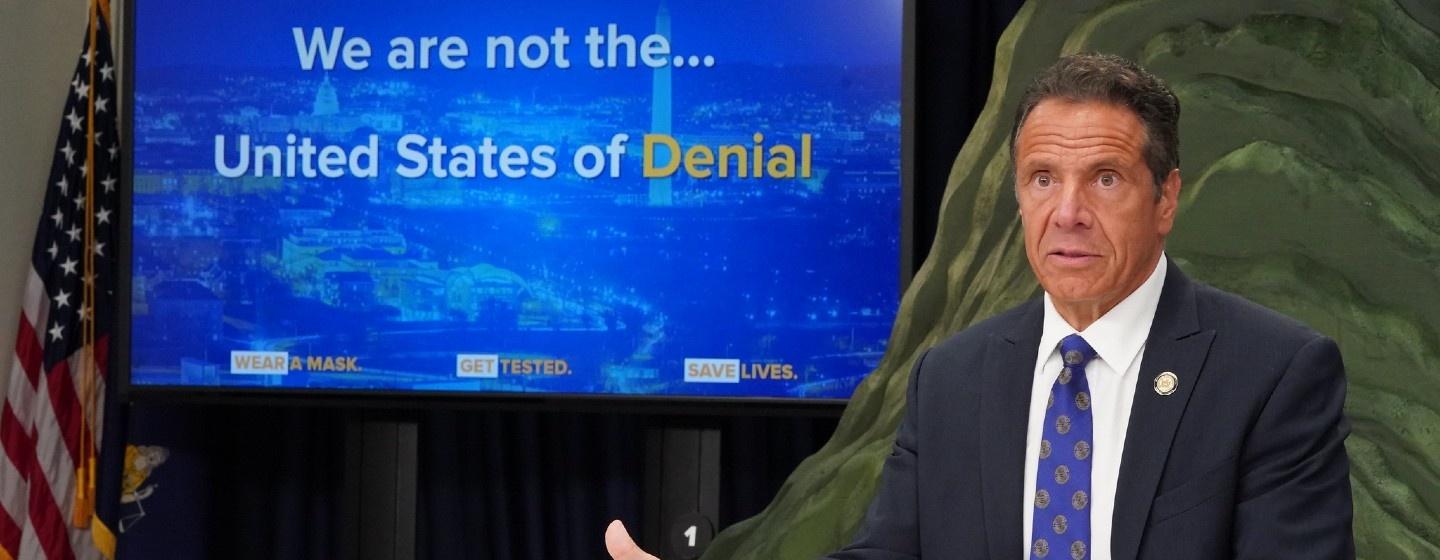New York state is facing a $30 billion budget deficit over the next two years if direct aid for the state and local governments isn’t included in the federal stimulus bill Congress is expected to negotiate over the next week and a half, Gov. Andrew Cuomo said Wednesday.
Cuomo sent a letter to New York’s congressional delegation Wednesday outlining the potential consequences if the federal government leaves state aid out of the legislation.
"This is the last bill that they'll probably get done, and this is going to be the determinative bill," Cuomo said. "This one counts. This is probably the most important and impactful piece of federal legislation since I've been serving as governor."
Cuomo said both the Metropolitan Transportation Authority and the Port Authority of New York and New Jersey are also facing revenue gaps in the billions, and could be forced to disrupt service and development if Congress doesn’t come through with new funding.
That could result in cuts to the MTA and higher fares to the public transportation network, and a slow-down to construction on the new John F. Kennedy Airport in Queens.
On a statewide level, Cuomo said the state Division of Budget is anticipating a 20% spending cut on education, hospitals, and local governments without aid from the federal government. He’s been warning of that cut since May, when the revenue gap was first realized.
New York is now facing a budget deficit of $30 billion through April 2022, Cuomo said. About $14 billion of that gap is projected through April 2021, with the remainder anticipated for the following year.
All told, Cuomo is seeking about $50 billion from the federal government to cure the state’s budget woes and provide relief to the MTA, Port Authority, and other agencies.
He also wants lawmakers to repeal a cap on the deduction of state and local taxes, which largely affects individuals with high property tax bills. The $10,000 cap was approved by Congress as part of the major tax reform package in 2017.
Some Democrats in the state Legislature have suggested that, instead of waiting for Congress to act, the state should enact a higher tax on wealthy earners. New York already has a higher tax on individuals earning more than about $1 million annually, but they’re seeking an increase.
The proposal appears to have support from some of the Legislature's top Democrats, including Senate Majority Leader Andrea Stewart-Cousins, D-Westchester. In a statement Wednesday, she said she would support a tax hike on the ultra wealthy.
“While we collectively work to get needed federal aid from Washington, there is no question that substantial additional revenue action from the state will be necessary," she said. "We are all hurting and this crisis calls for multimillionaires and billionaires to help our state shoulder this extraordinary burden."
State Budget Director Robert Mujica dismissed that idea Wednesday, saying a higher tax on the wealthy wouldn’t be enough to fill the state’s budget gap, and that it could drive high-income earners out of New York.
“We have to be very careful of doing anything that’s going to alter the balance anymore than the pandemic has already done,” Mujica said. “There’s not a way to tax yourself out of this problem.”
Supporters of a higher tax on the wealthy have argued that, while such a tax may not be an immediate solution to the state’s budget crisis, it could generate a permanent revenue stream for the state’s coffers.



